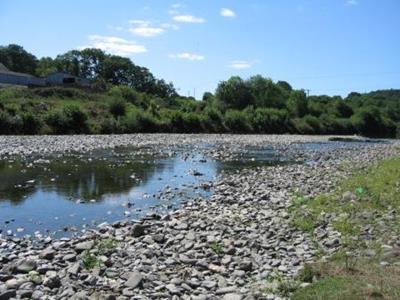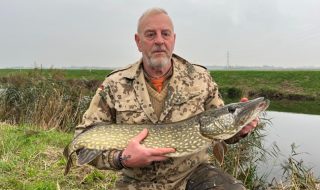The Angling Trust has written to the recently appointed Water Minister, Dr Thérèse Coffey MP, to urge her to fulfil promises from previous Ministers to reform the water abstraction licensing system and afford better protection to our precious rivers.
The Angling Trust, alongside conservation and fisheries NGOs, has been calling for a reform of abstraction licensing policy for several years and the government announced last December its intention to do this, but there has been little or no progress subsequently and there are worrying indications that the promise to act is going to be broken.
The current regime, which is the national system that approves water being taken from the environment for use by the public, businesses and farms, was formally created by the Water Act of 1963, by amalgamating previous licences into a single permitting regime.
At the time, this was done with little or no consideration of what level of abstraction our water bodies could actually supply without causing harm to wildlife. Today, a third of river catchments in England and Wales are either ‘over-licensed’ or ‘over-abstracted’ according to Environment Agency figures, with more water taken out than the environment can sustain. Furthermore, around 600 water bodies are at risk of failing to meet EU Water Framework Directive standards due to low flows resulting from abstraction.
There are some promising indications of change. Earlier this year the government consulted on proposals to bring a raft of damaging abstractions into the licensing system that were previously exempt from any control, under the banner of New Authorisations. This will include highly damaging trickle irrigation, water transfers between water bodies, and dewatering of mines, quarries and engineering works.
However, a far more fundamental change is required if the UK is to meet increasing demands on water resources into the future while protecting the aquatic environment from excessively low flows. The Angling Trust believes it essential that a number of key resilience measures are implemented imminently, including:
• A new abstraction regime that is closely linked to water availability and which goes beyond simply protecting the environment against “no deterioration” to improve it systematically through the setting of environmental flows.
• Compulsory water metering by companies where there are clear social benefits, as part of a package that includes water efficiency measures and social tariffs that protect the most vulnerable.
• Reduced reliance on groundwater sources and clear targets for replacing aquifer abstraction with surface supply and storage – i.e. building new storage reservoirs to increase winter storage.
Mark Lloyd, Chief Executive of the Angling Trust & Fish Legal, said: “Successive ministers have looked at the nettle of abstraction reform and have made positive noises about their intention to tackle it, but none has actually grasped it. Meanwhile, our fish populations are suffering as a result of low flows and water levels: pollutants are concentrated, temperatures increase, oxygen levels decrease, there is less wetted area for invertebrates and other food favoured by fish, they are more vulnerable to predation, they are less able to migrate up and down rivers to complete their lifecycle and there is a greater risk of disease. Fish and other wildlife need the new Minister to get a grip of abstraction reform now, not at some uncertain point in the future.”






